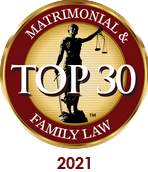Tangible and Intangible Assets and How They Relate to Divorce
 When going through a divorce, it is essential to make difficult decisions, such as who will get what property, including the ownership of pets and the marital home. Both tangible assets and intangible assets are subject to an equitable property division during a divorce. When dealing with complex matters such as division of intangible assets, it is best to hire the best Sarasota, Bradenton, Lakewood Ranch, and Venice, Florida divorce attorney near you that you can find such as Attorney Matthew Z. Martell to help guide you through the process of dividing such marital assets during a divorce.
When going through a divorce, it is essential to make difficult decisions, such as who will get what property, including the ownership of pets and the marital home. Both tangible assets and intangible assets are subject to an equitable property division during a divorce. When dealing with complex matters such as division of intangible assets, it is best to hire the best Sarasota, Bradenton, Lakewood Ranch, and Venice, Florida divorce attorney near you that you can find such as Attorney Matthew Z. Martell to help guide you through the process of dividing such marital assets during a divorce.
Tangible and Intangible Assets
Knowing the difference between tangible and intangible assets can help you better determine what you have and how it should be divided. Tangible assets are those that are physical. Tangible assets include vehicles, homes, equipment, stock, land, and cash. Intangible assets are not physical and include trademarks, franchises, licenses, copyrights, patents, art royalties, and brands.
How Do These Assets Relate to Divorce?
When going through a divorce, all tangible marital assets are divided equally among both parties. However, if you are going through a high-asset divorce, intangible assets may also need to be accounted for during the division of marital assets. The division of intangible assets could be a problem because some such as copyrights and patents have a complex process to establish a value. An experienced divorce attorney near you in Sarasota, Bradenton, Lakewood Ranch and Venice, Florida like divorce lawyer Matthew Martell, Esq. can help explain how tangible and intangible assets are taken into consideration during a divorce.
What Happens to Cryptocurrencies in a Divorce?
Cryptocurrencies are digital money that is easily transferred without a bank or other third party. This form of currency has become popular in recent years, and some couples now have cryptocurrency. Cryptocurrency is subject to division like other types of property during a divorce. When filing for divorce, all ownership of cryptocurrencies must be disclosed under Florida mandatory disclosure rules. When determining the value of cryptocurrency, the courts may use the original purchase price but most likely will use the current conversion rate into U.S. dollars.
How do Assets Get Divided in a Divorce?
Under Florida law, property acquired during a marriage is considered “marital property” and is subject to equitable division among both parties. Equitable division of property means that the assets should be divided in a fair and equal manner. Several things are considered when calculating the division of assets, such as how long the marriage lasted, how much money each spouse earns, and if there are any considerable amounts of non-marital assets.
When dividing assets, every divorce case is different. Therefore, it is always best to work things out with your spouse rather than letting the courts determine how everything gets divided.
How Assets Are Valued
In most cases, marital assets are valued based on an item’s current fair market value. For example, the fair market value is what the home would sell if it were listed today with a real estate agent. The valued amount would then be used to calculate the total amount of assets. When valuing intangible assets, several things are considered, such as the asset’s current value and any potential future income from the asset.
A highly experienced Sarasota, Bradenton, and Venice, Florida divorce lawyer such as Matthew Z. Martell can help you list your marital assets and put a fair value on each one.
How a Sarasota, Bradenton, and Venice, FL Divorce Attorney Can Help
A good divorce attorney can help you make a complete list of your marital assets and help assign the appropriate value to each item. They can also help determine a fair division of the property before submitting the proposed Equitable Distribution Worksheet and/or Marital Settlement Agreement to the opposing counsel. Then, if needed, your divorce attorney appears in court with you to help plead your case at trial and ensure the assets are divided fairly so you do not lose out on what is rightfully yours.














































































